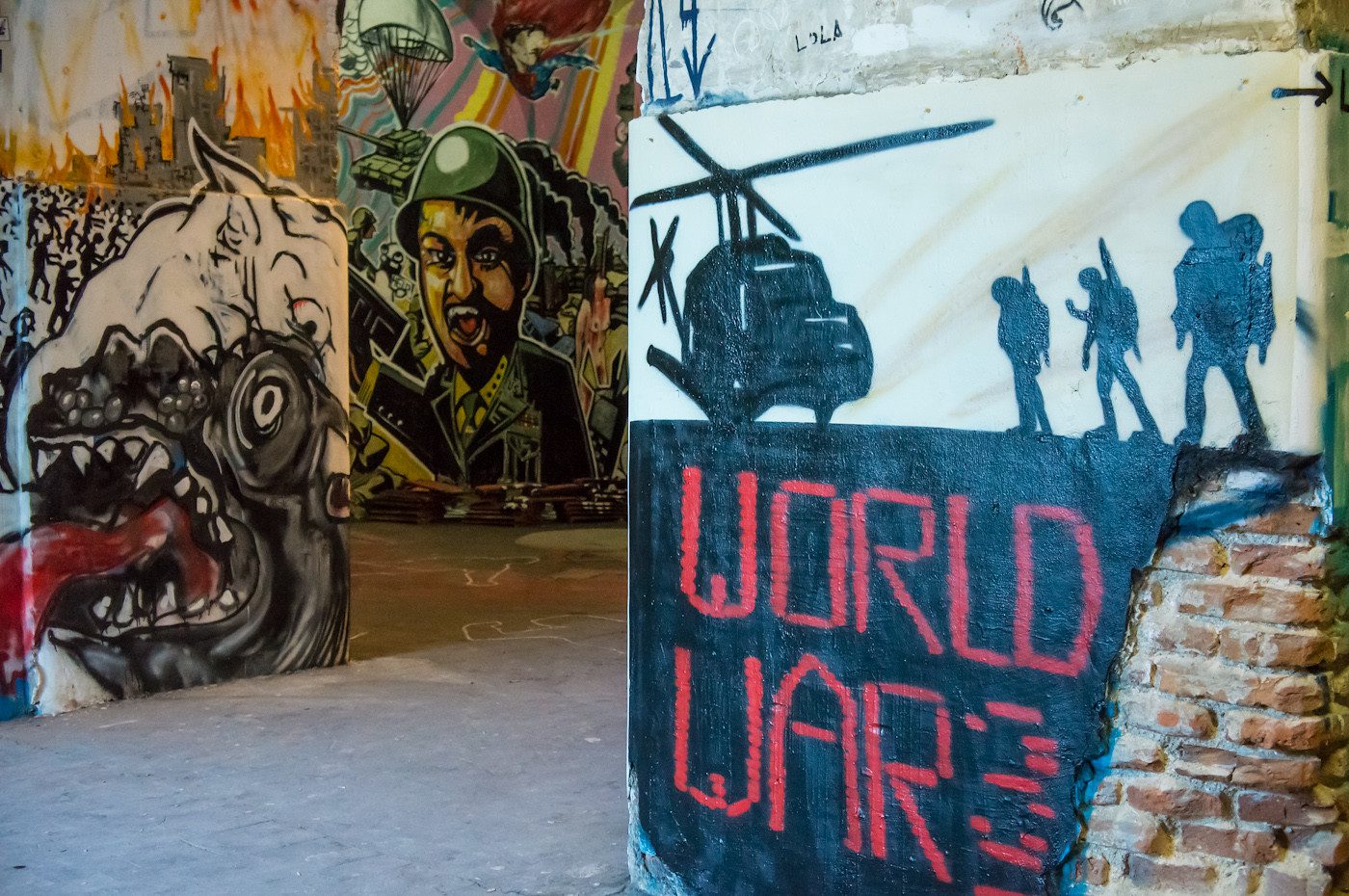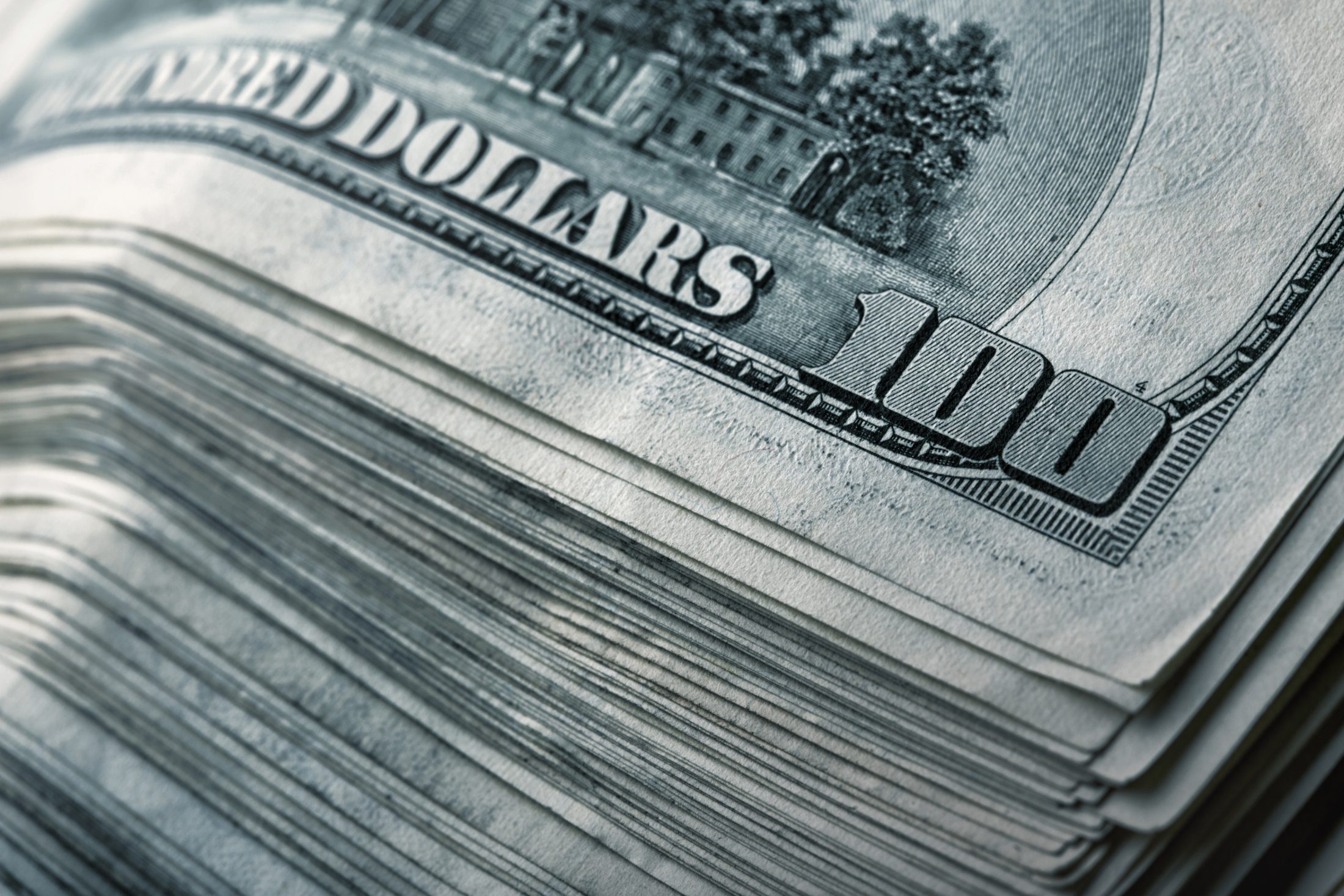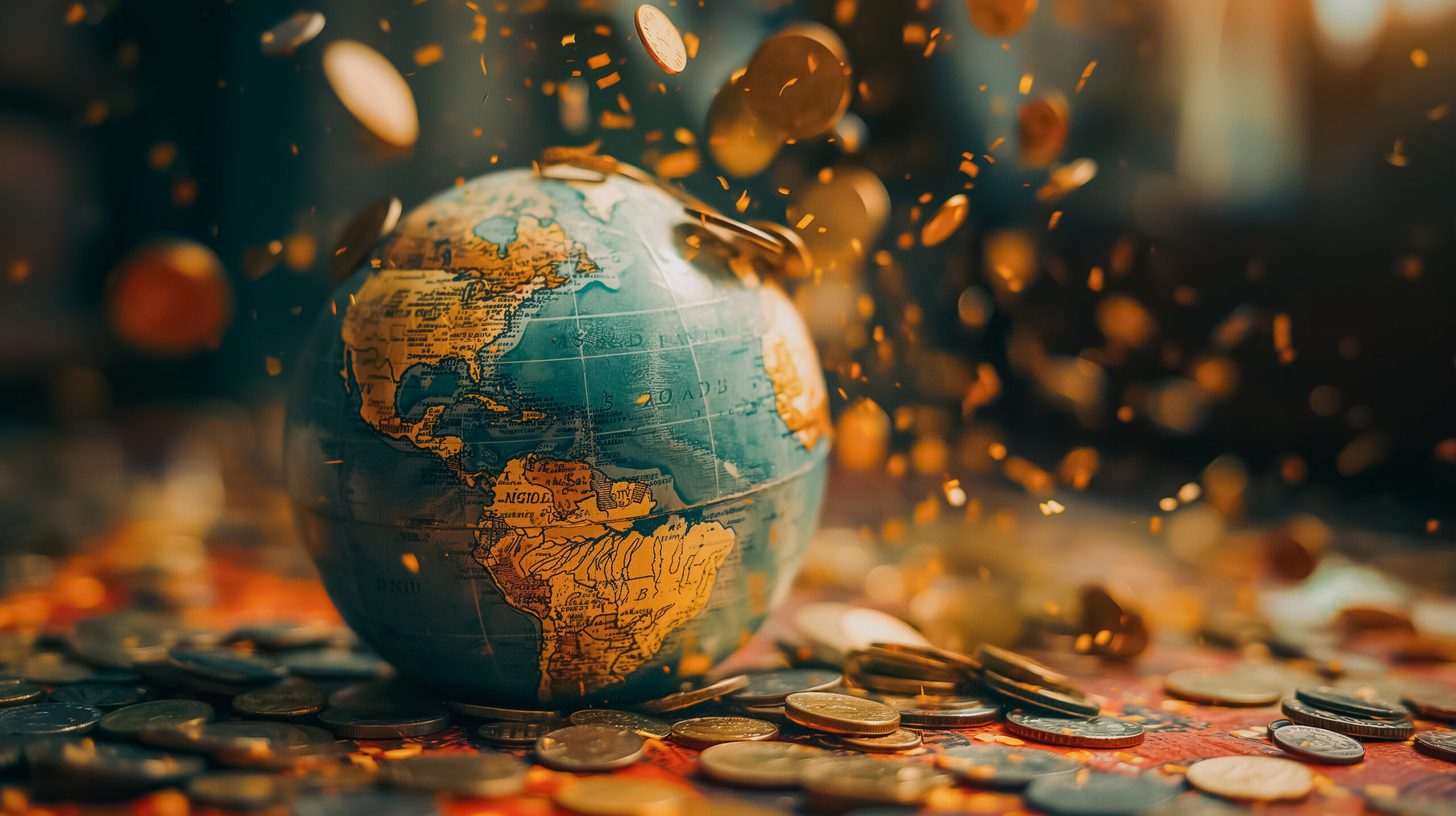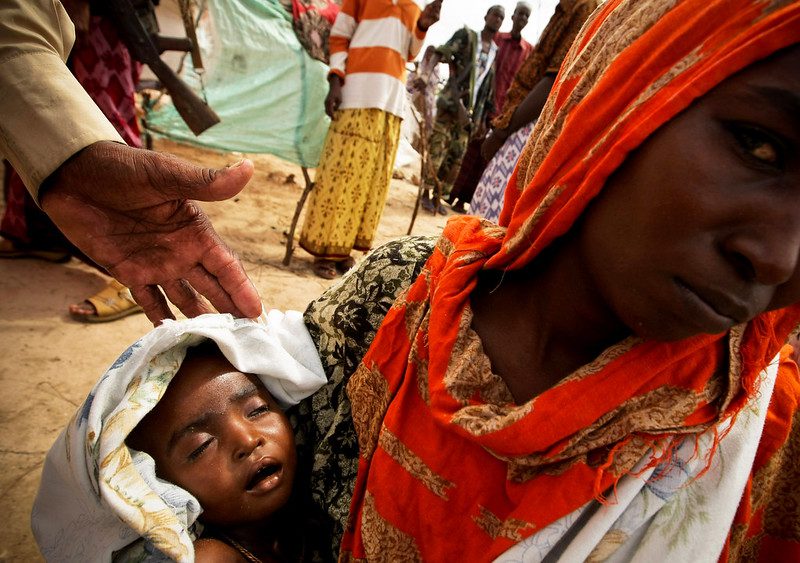Below are excerpts from Alex de Waal’s “Garrison America and the Threat of Global War,” published by The Boston Review on December 5, 2016. The text version is available on their website.
Donald Trump was elected as the mouthpiece for a populist insurgency that humbled the biggest political machine in the United States. But he is also a plutocrat, a scion of the very system against which he mobilized so much anger. And his cabinet is oligarchy incorporated. What most distinguished Trump from Hillary Clinton in his public performance was his candor in admitting that the system is rotten and so is he. Trump was elected because he is deplorable, and proud of it.
However fascinating and repugnant is Trump as a political performance, his campaign is but a buoy bobbing up and down, revealing the existence of powerful national and global currents, not directing them. Those currents were caused by something else. This essay tries to identify and examine those underlying currents, which derive from the deregulation of the financial sector and liberal capitalism, from the rapaciousness of the national security establishment, and from the political logic that derives from their fusion.
My guide to understanding our current global and political crisis is Karl Polanyi’s The Great Transformation. Published in 1944 amid the ruins of nineteenth-century liberal civilization, Polanyi’s account is prescient of the dangers of the second global liberal order and its eventual unraveling. He describes how the unprecedented century of peace among the Great Powers (1815–1914) culminated in a world dominated by institutions dedicated to managing the global market. To Polanyi, the central intellectual error of nineteenth-century political economists was to treat land, labor, and money as actual commodities, rather than “fictitious commodities” governed by human values. Against the logic of the market, he said, they cannot be priced according to supply and demand, and any attempt to do so would ultimately render human society incoherent—“a wilderness.” This, he argued, duly transpired in the early twentieth century’s era of liberal globalization, followed by ostensibly protective measures against the societal devastation—war among empires, revolution and fascism—which of course caused even greater annihilation. In increasingly desperate attempts to preserve the market-based global order—especially the gold standard—entire societies were sacrificed. It was a fruitless sacrifice, because the price ultimately paid was totalitarianism, the bloodletting of World War II, and the Holocaust.
Nonetheless the global order of the last seventy years has been increasingly organized around the market principle, which started as a chastened junior partner to the multilateral system designed in Bretton Woods but ended up running the show with hubris reminiscent of Victorian laissez-faire imperialism. Only in the last few years have economists woken up to the extremes of inequality engendered by unfettered global markets. Meanwhile Brexit and the Trump vote have shown us the political significance of the societal wastelands that follow in their wake.
[***]
So now—a winning minority of the electorate having lodged its protest and voted for its own gravedigger—the logic of today’s political economy is laid bare. What then can we take from The Great Transformation to deeper our understanding of our predicament? Polanyi’s central conclusion is that unregulated capitalism promised a “stark Utopia” of great wealth but destroyed the social and material basis of a humane society. Just over a hundred years ago, nineteenth-century Western liberal civilization reached its apogee, which was also the moment at which it could no longer contain the forces of disorder that it had unleashed. The massive destruction of the world wars, the communist revolution, fascist imperialism, and the Great Depression followed. Capitalism was reprieved by the political dispensation that followed World War II. John Maynard Keynes provided the intellectual capital for managing the market, and the victors of the war recognized that full employment, social welfare, and a good measure of equality were necessary to save civilization. But capitalism’s dangerous tendencies remained and, once freed from the challenge of socialism, its utopian dogma was again ascendant. The inevitable crisis is now here.
Financially, renewed crisis has crept up on us since the false hopes following the 2008 bailout. Interest rates in the world’s biggest economies are now effectively zero, and in some cases negative. Central banks will borrow money from creditors, promising that they will return almost all of it. Investors cannot bank on the future: there is an oversupply of financial derivatives relative to the actual goods and services that make up a real economy. The Wall Street Journal, the Economist, and the Financial Times worry that the world’s central bankers have run out of instruments to fix global financial crises.
The political crisis is here too, its self-anointed saviors donning the uniform of plutocratic populism. It is a revolt not only against the wastelands created by neoliberal economic orthodoxies, but also against the way in which monetized machine politics reduces political identities to commodities. The reactionary insurgency is driven by a collapse of confidence in governing elites: the promises made by mainstream politicians now trade at such a discount they are worthless. The populists’ immediate and opportunistic targets of scapegoating are immigrants, minorities, and free-trade agreements. The insurgents respect men in uniform, their weapons, and solutions imposed by force of arms. Let us call this Garrison America.
[***]
At times like this, we need farsighted leaders with a sense of the dangers that await. Britain was ill provided. Brexit, until last month the biggest political tremor in the crumbling of the global-multilateral order, was the product of the reckless, small-minded ambitions of a coterie of old school chums who played with matches and burned the house down. If illustration were needed of the catastrophic smugness of an elite, look no further than Boris Johnson, for whom the fate of the country was of no greater import than a nice turn of phrase in a newspaper column. After Brexit, with the lies of its proponents exposed and Remainers’ predictions of calamity coming true one by one, the British government is wholly preoccupied with the stupendous mountain of legal paperwork necessary for the world’s most complicated divorce. It is uncertain what is more antithetical to farsighted leadership: the self-inflicted paralysis of London, or the freedom of action enjoyed by the incoming Republican president with a Republican legislature in Washington, D.C.
Trump’s promises have been so vague that it will be hard for him to disappoint. Nonetheless, many of his supporters will wake up to the fact that they have been duped, or realize the futility of voting for a wrecker out of a sense of alienated desperation. The progressives’ silver lining to the 2016 election is that, had Clinton won, the Trump constituency would have been back in four years’ time, probably with a more ruthless and ideological candidate. Better for plutocratic populism to fail early. But the damage inflicted in the interim could be terrible—even irredeemable if it were to include swinging a wrecking ball at the Paris Climate Agreement out of simple ignorant malice.
Polanyi recounts how economic and financial crisis led to global calamity. Something similar could happen today. In fact we are already in a steady unpicking of the liberal peace that glowed at the turn of the millennium. Since approximately 2008, the historic decline in the number and lethality of wars appears to have been reversed. Today’s wars are not like World War I, with formal declarations of war, clear war zones, rules of engagement, and definite endings. But they are wars nonetheless.
What does a world in global, generalized war look like? We have an unwinnable “war on terror” that is metastasizing with every escalation, and which has blurred the boundaries between war and everything else. We have deep states—built on a new oligarchy of generals, spies, and private-sector suppliers—that are strangling liberalism. We have emboldened middle powers (such as Saudi Arabia) and revanchist powers (such as Russia) rearming and taking unilateral military action across borders (Ukraine and Syria). We have massive profiteering from conflicts by the arms industry, as well as through the corruption and organized crime that follow in their wake (Afghanistan). We have impoverishment and starvation through economic warfare, the worst case being Yemen. We have “peacekeeping” forces fighting wars (Somalia). We have regional rivals threatening one another, some with nuclear weapons (India and Pakistan) and others with possibilities of acquiring them (Saudi Arabia and Iran).
Above all, today’s generalized war is a conflict of destabilization, with big powers intervening in the domestic politics of others, buying influence in their security establishments, bribing their way to big commercial contracts and thereby corroding respect for government, and manipulating public opinion through the media. Washington, D.C., and Moscow each does this in its own way. Put the pieces together and a global political market of rival plutocracies comes into view. Add virulent reactionary populism to the mix and it resembles a war on democracy.
What more might we see? Economic liberalism is a creed of optimism and abundance; reactionary protectionism feeds on pessimistic scarcity. If we see punitive trade wars and national leaders taking preemptive action to secure strategic resources within the walls of their garrison states, then old-fashioned territorial disputes along with accelerated state-commercial grabbing of land and minerals are in prospect. We could see mobilization against immigrants and minorities as a way of enflaming and rewarding a constituency that can police borders, enforce the new political rightness, and even become electoral vigilantes.
Liberal multilateralism is a system of seeking common wins through peaceful negotiation; case-by-case power dealing is a zero-sum calculus. We may see regional arms races, nuclear proliferation, and opportunistic power coalitions to exploit the weak. In such a global political marketplace, we would see middle-ranking and junior states rewarded for the toughness of their bargaining, and foreign policy and security strategy delegated to the CEOs of oil companies, defense contractors, bankers, and real estate magnates.
The United Nations system appeals to leaders to live up to the highest standards. The fact that they so often conceal their transgressions is the tribute that vice pays to virtue. A cabal of plutocratic populists would revel in the opposite: applauding one another’s readiness to tear up cosmopolitan liberalism and pursue a latter-day mercantilist naked self-interest. Garrison America could opportunistically collude with similarly constituted political-military business regimes in Russia, China, Turkey, and elsewhere for a new realpolitik global concert, redolent of the early nineteenth-century era of the Congress of Vienna, bringing a façade of stability for as long as they collude—and war when they fall out.
And there is a danger that, in response to a terrorist outrage or an international political crisis, President Trump will do something stupid, just as Europe’s leaders so unthinkingly strolled into World War I. The multilateral security system is in poor health and may not be able to cope.
Underpinning this is a simple truth: the plutocratic populist order is a future that does not work. If illustration were needed of the logic of hiding under the blanket rather than facing difficult realities, look no further than Trump’s readiness to deny climate change.
We have been here before, more or less, and from history we can gather important lessons about what we must do now. The importance of defending civility with democratic deliberation, respecting human rights and values, and maintaining a commitment to public goods and the global commons—including the future of the planet—remain evergreen. We need to find our way to a new 1945—and the global political settlement for a tamed and humane capitalism—without having to suffer the catastrophic traumas of trying everything else first.



